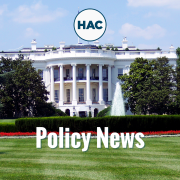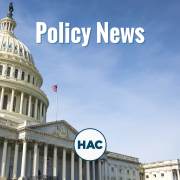HAC Supports USDA’s Interest in Racial Justice, Equity, and Underserved Communities
Federal policy and programs benefit some areas of the United States while harming others. HAC was pleased to see the Administration’s Executive Order On Advancing Racial Equity and Support for Underserved Communities Through the Federal Government, published on President Biden’s first day in office. In Section 2 of that Order, we were glad to see “persons who live in rural areas” included in the list of groups who need to be granted “consistent and systematic fair, just, and impartial treatment.” Further, we were glad to see “geographic communities” a category that should be considered when determining an “underserved community.”
On this basis, HAC supports USDA’s efforts to advance justice and equity for communities underserved by USDA itself and by others. HAC’s comments submitted in response to USDA’s request for information on Identifying Barriers in USDA Programs and Services; Advancing Racial Justice and Equity and Support for Underserved Communities at USDA address actions that are necessary in several areas. Building capacity, improving access to capital, increasing flexibility, and engaging with stakeholders are among the subjects addressed in HAC’s comments.
In a similar vein, HAC also recently commented on an administration request for input on equity across all federal agencies.


